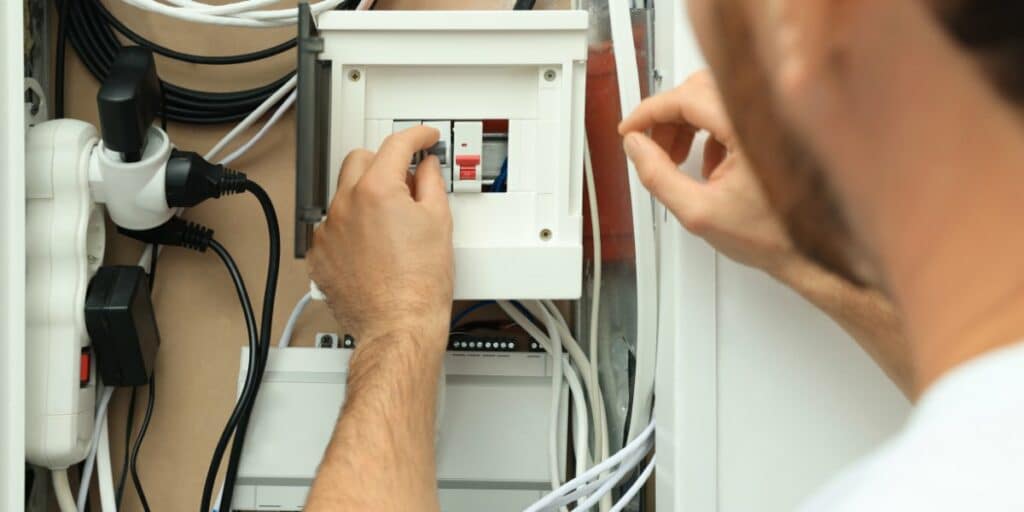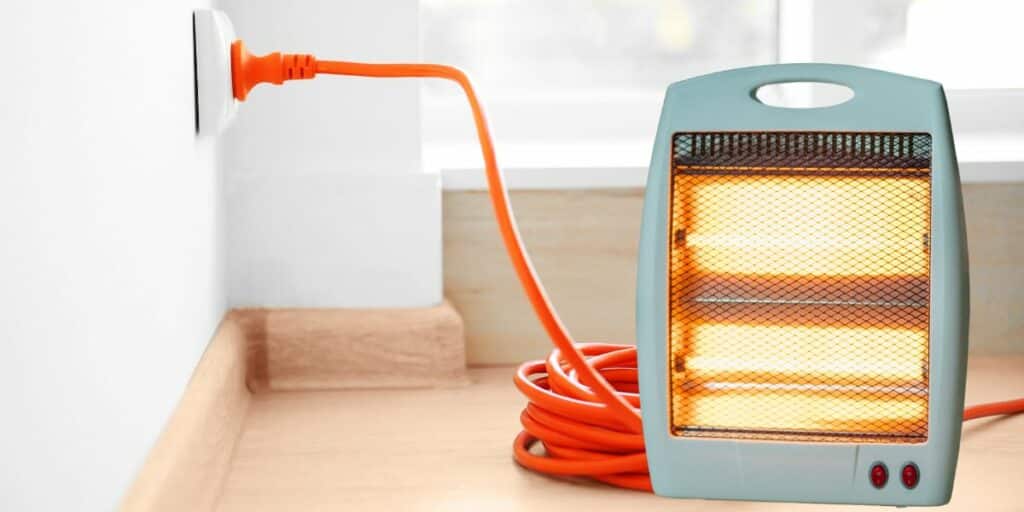When winter’s chill sets in, a space heater becomes more than just an appliance—a source of warmth and comfort. However, the frustration of a space heater blowing a fuse can turn this source of warmth into a major inconvenience. Understanding why this happens and how to prevent it is essential for safe and efficient heater operation. This guide aims to demystify the process, ensuring you stay warm without interruptions.
What is a Blown Fuse?
A “blown fuse” with space heaters often doesn’t traditionally involve actual fuses. Modern homes use circuit breakers; when we talk about a blown fuse, we usually refer to a tripped circuit breaker.

This safety mechanism activates to prevent damage or fires by shutting off the power when a circuit overheats or becomes overloaded. This is a common issue with high-demand appliances like space heaters, which draw significant amounts of electricity.
Why Do Space Heaters Trip Circuits?
A space heater trips a circuit primarily due to an overloaded circuit. Circuits are designed to handle a certain electrical load, measured in amps. When a space heater, especially a powerful 1500W model drawing 12.5 amps, is used on a circuit with other appliances, the combined load can exceed the circuit’s capacity, causing the breaker to trip.
Overloaded Circuits
An overloaded circuit is not just an inconvenience; it’s a sign that your electrical system is working harder than it should. This can happen easily in homes where the space heater shares a circuit with high-demand appliances like toasters, irons, or vacuum cleaners.
The solution? Be mindful of the total load on any given circuit. Avoid using other high-demand appliances simultaneously with your space heater on the same circuit. Familiarizing yourself with the amp ratings of your circuits and appliances can help you manage your electrical load more effectively.
How do you prevent an overloaded circuit?
- Dedicated Usage: One practical step is to ensure that your space heater is the only high-demand appliance used on a circuit. This might require trial and error, identifying which outlets are on which circuits and possibly rearranging your appliance setup based on your electrical panel’s labeling.
- Lower Heat Setting: Another simple yet effective solution is to run your space heater on a lower setting. If your heater has adjustable wattage, a lower setting reduces the electrical load, possibly preventing the circuit from tripping. This approach keeps you warm, conserves energy, and reduces your electric bill.
Overheated Circuit
If your space heater consistently trips circuits without other appliances, it could indicate a deeper problem, such as an issue with the heater or the circuit’s wiring. In such cases, it’s safer to discontinue using the problematic heater. Overheating electrical appliances pose a significant fire risk, and an electrician’s expertise may be required to ensure your home’s electrical system is safe.
Extension Cords
The use of extension cords with space heaters is a notable risk factor.

Most extension cords aren’t designed to handle the high current draw of space heaters, leading to overheating and potential fire hazards. The Consumer Product Safety Commission highlights the dangers of extension cord fires, recommending that space heaters be plugged directly into wall outlets to avoid risks.
What to Do if the Heater Continues to Trip the Breaker?
If your space heater keeps tripping the breaker, it’s crucial to take this warning seriously and not just keep resetting the breaker. Every time the breaker trips, it’s alerting you to a potential danger in your electrical system.
Here’s a step-by-step guide on what to do:
- Stop Resetting the Breaker: Continuously resetting a tripped breaker without solving the underlying issue can escalate the risk of an electrical fire. The breaker trips are a safety measure to prevent overheating and damage to your electrical system.
- Unplug the Heater: Disconnect the heater from the outlet to prevent any immediate risk and to help determine if the heater is the source of the problem.
- Check for Overloading: Investigate if the circuit is overloaded with other appliances besides the heater. If possible, redistribute your appliances to different circuits to reduce the load.
- Inspect the Heater and Cord: Look for any signs of damage, wear, or fraying on the heater and its power cord. Damaged appliances can cause short circuits, leading to the breaker tripping.
- Try a Different Outlet or Circuit: Plug the heater into a different outlet, preferably on a different circuit, to see if the problem continues. This can help identify if the issue lies with the heater or the original circuit.
- Consult a Professional: If the above steps don’t resolve the issue, it’s time to call in a licensed electrician. There could be a more complex problem within your electrical system, such as a faulty breaker, inadequate wiring, or a need for a panel upgrade. An electrician can conduct a thorough inspection to identify and fix the root cause of the problem.
- Consider Heater Replacement: If the electrician finds that the heater is at fault and repairs might not be feasible or cost-effective, consider replacing it with a new, more efficient model. Ensure that any new heater is appropriately sized for the space and the electrical circuit it will be used on.
Remember, safety should always be your top priority. Electrical issues can pose significant risks, and addressing them properly can prevent damage to your home and ensure the safety of its occupants. If your breaker continues to trip, heed the warning and seek professional help to resolve the issue safely and effectively.
Final Thoughts
A space heater that frequently blows fuses is more than just an annoyance; it’s a sign that demands attention.
By understanding the electrical demands of your space heater and managing the circuit load, you can prevent most issues related to blown fuses. Remember, safety should always be your top priority. Avoid using extension cords, monitor your appliance’s electrical demands, and consult a professional electrician if unsure about your home’s electrical capacity.
With these precautions, you can enjoy the cozy warmth of your space heater all winter long without any unwanted surprises.






